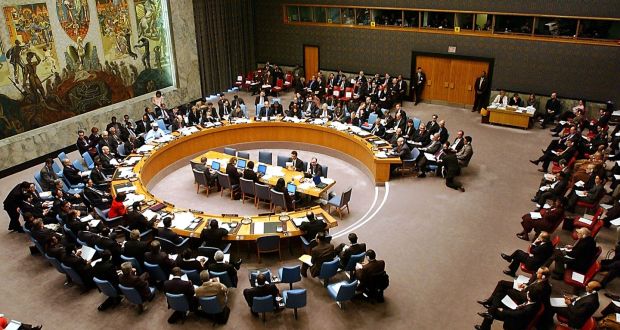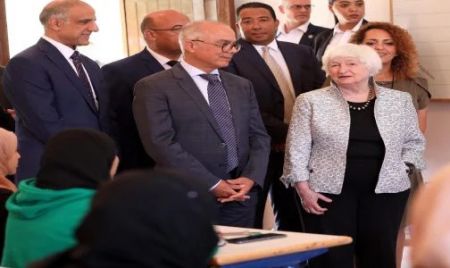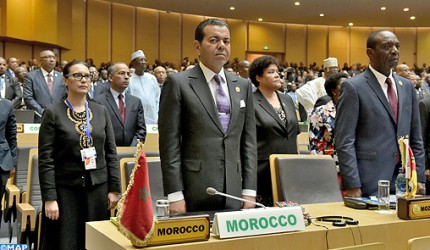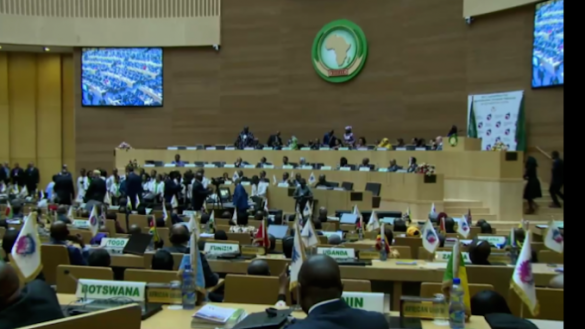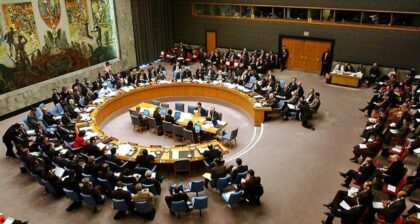 The UN Secretary General’s Personal Envoy for the Sahara, Staffan de Mistura, is expected to undertake a second tour in the region for talks with the parties involved in the Sahara dispute.
The UN Secretary General’s Personal Envoy for the Sahara, Staffan de Mistura, is expected to undertake a second tour in the region for talks with the parties involved in the Sahara dispute.
De Mistura made the announcement Wednesday following the semi-annual closed-door consultations meeting on the Sahara issuea. According to press reports, he said the visit will be “soon, I hope.”
Staffan de Mistura was appointed to the position last November, nearly three years after the resignation of the former UNSG’s Personal Envoy Horst Kohler.
This will be his second tour in the region in less than 4 months, his first trip to the region having taken place in January.
Actually, Staffan de Mistura briefed the Security Council members on his first tour in the region. Special Representative of the Secretary-General and head of MINURSO, Alexander Ivanko, also brief the Council via video-conference.
According to well-informed UN diplomatic sources, during the closed-door UN Security Council meeting, several members expressed support to the Morocco-proposed autonomy plan, deeming this plan as a serious and credible basis for ending the regional dispute over the Sahara, as enshrined in UNSC resolutions since 2007.
Similarly, the recent historic support of Spain and Germany for the autonomy initiative has been omnipresent during the Council’s consultations.
According to the diplomatic sources, the members of the Security Council have strongly and unanimously supported the UN political process to achieve a political, realistic, pragmatic, sustainable and compromise-based solution to the Sahara issue, as enshrined in the 18 consecutive resolutions adopted by the Security Council since 2007, including Resolution 2602, adopted last October.
In this regard, they reaffirmed their support to the efforts of the UN Secretary-General’s Personal Envoy to relaunch the UN political process. A strong and frank call was made for the resumption, as soon as possible, of the round-table process, which Algeria continues to oppose, in an additional challenge to the international community.
In Resolution 2602, the UN Security Council mentioned Algeria five times and urged it to remain committed to the round-table process in a spirit of realism and compromise, in order to achieve a successful outcome, thus establishing Algeria as the main party to this regional dispute.
The members of the Council also welcomed Morocco’s full cooperation with the MINURSO, with special mention of the Kingdom’s COVID-19 vaccination campaign which covered the UN mission’s members.
The Security Council members expressed their utmost concern over the polisario’s renunciation of the ceasefire, its violations of military agreements and its obstruction of MINURSO’s activities and the freedom of movement of its military observers.
They also instructed the polisario to respect the ceasefire, to refrain from any act of provocation, and to stop its dangerous obstruction of MINURSO’s ceasefire supervision mandate, notably by blocking its patrols and preventing the supply of military observers, as detailed in the Secretary-General’s latest report to the Security Council, released last October.
According to the same sources, this meeting took place in a serene atmosphere, likely to ensure best conditions for the UN Secretary-General’s Personal Envoy mandate, in accordance with Resolution 2602.
The US, Germany, France, Israel, Spain, the majority of the Arab World and Africa and influential countries in Latin America such as Chile and Brazil all back Morocco’s territorial integrity and the vast majority of the world’s countries back a UN process, which describes the autonomy plan as serious and credible.
The Security Council meeting thus took place in a new geopolitical context and a changing dynamic in favor of Morocco’s autonomy plan as a win-win approach to settle the dispute and bring peace and stability to the region.
“Morocco is not negotiating its sovereignty over the Sahara but rather a political solution to the conflict,” king Mohammed VI said in a landmark speech commemorating the Green March last November.
